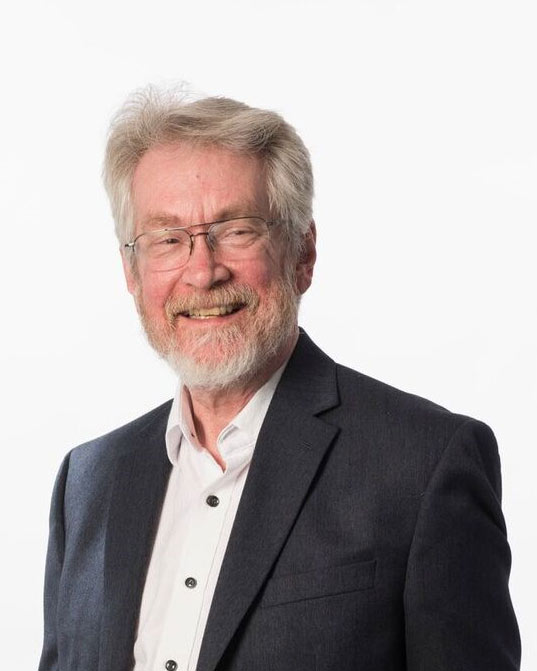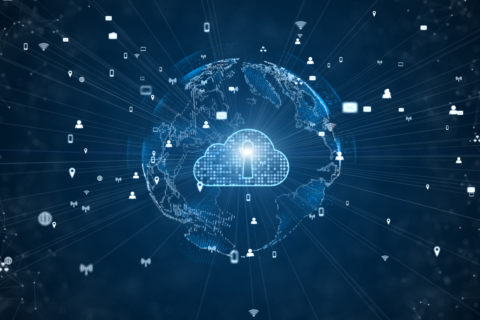“Google doesn’t know anything”
MIT Professor, Alex ‘Sandy’ Pentland talks about his pioneering work in wearables and data protection. He also debunks a few myths about AI and machine learning.
One of the most-cited computational scientists in the world, and recently declared by Forbes as one of the “7 most powerful data scientists in the world” Pentland is regarded as a leading pioneer in wearables. A serial entrepreneur, he is a member of a.o. World Economic Forum (WEF) Councils, Advisory Boards of the UN, and has advised such firms as AT&T, Telefonica, Google and Nissan.

Author of Social Physics and Honest Signals, Pentland’s research focuses on social physics, big data, and privacy. His work involved large-scale experiments with people equipped with mobile devices, such as a ‘sociometer’, and other technologies that allow behaviour tracking. The results were then aggregated using big data techniques. He recalls how he first developed this approach. “We started 30 years ago. At the time there were no wearables, no cell phones, no wireless communication, nothing. But it was clear that all of that was coming. As we wanted to figure out what was going to happen, we built our own wearable technology from bits and pieces.”
He and his team equipped some 20 students with these revolutionary mobile devices. They wore them continuously for a year and a half. “We asked: what difference do these technologies make in somebody’s life? We experimented with our own local versions of instant messaging and search.” Suddenly there was data of human behaviour in a way that never existed before. This enabled the team to ask questions like: what groups are more creative than others? “We could now have a more predictive analysis of creativity and productivity, because we could prove how creativity spreads in a group. According to popular belief, influencers spread ideas whereupon others follow. But the data shows that’s simply not true. It also shows that advertisers and broadcasters don’t have as much influence as they think.”
So what are people influenced by? A key answer Pentland found was: by each other. “They’re not necessarily influenced just by people with similar demographics. Such categories have some influence but not as much as the group of people that you spend time with. Understanding people starts with rough theories on how they make decisions in order to be able to figure out where there ought to be big effects. And then we check it again with data. You make a hypothesis, you test it, then go back and test it again. And data is tricky because sometimes you may get a positive response but you have to be careful because you get these false positives.”
Good gossip
Exploring an abundance of different ideas is key to increasing a group’s intelligence, according to Pentland’s research. “Diversity results in better ideas to choose from. Engagement within the group is also important, to getting everybody’s input. But what’s really surprising is the extent to which that engagement and exploration cycle determines the outcome of the group. In many organisations the groups are so confrontational that they don’t actually get much input; there are only certain people that talk. And when that happens, worse decisions are made.” He found that cycle is a better predictor of group output than factors such as the smartest people within the group, or the average intelligence. Therefore, our notion of talent is really wrong. “Not that you want untalented people, but the process of aggregation is much more important.”
The way ideas spread has in recent years been highlighted by the impact of misinformation, most notably fake news. Pentland explains why this spreads so rapidly. “It produces adrenaline. It grabs people’s attention, and it’s a kind of social contribution, like gossip. Now gossip can occasionally be very good. It can save you if there’s a tsunami and the news spreads quickly.” In order to squash bad gossip, Pentland argues, the origin of the information should be looked at carefully. “If it comes from just one group of people who share the same input, you have to be very sceptical because then it could just be gossip. But if you see people endorsing it from many different communities, then it’s much more likely to be true. Similarly, if things are passed very quickly, they’re less likely to be true. And if news appeals to a wider group, then it’s more likely to be true, because it doesn’t have to rely on just adrenaline material.”
Human element
In the market research and insights sector there are concerns that technological developments such as AI could lead to more spurious correlations and biased data. Pentland however is confident that the human element will maintain a strong and controlling presence. “Clearly, the human element and human governance are central. Any sort of rule-based system is not as flexible a sensor; you need to keep humans in the loop.” He observes that AI is most successful where it supports people in doing people-type activities, such as search or navigation. “Those are things where people are in charge. Most AI applications are not making decisions for people, they’re aggregating data from human behaviour. Google doesn’t know anything; it just adds up input from searches and connections.”
Indeed, Pentland stated earlier that without data AI is nothing. He feels that AI and related technologies, such as machine learning, are often misunderstood and that most fears are unwarranted. “It’s because the AI doesn’t know anything about the real world. It’s not qualitatively different from what we’ve had for many years. It is easier to use and more general, but it doesn’t have any human common sense. It’s a long way from anything you’d call intelligence. It just mimics it.” Because of the many misunderstandings, there is a danger that organisations hand over too much responsibility to AI; something he sees as a mistake. “Before we deploy these systems, we need to make sure they work the way we want them to. We must define them by repeated trial and experimentation.”
Saving lives
On a positive tech note, Pentland sees developments leading to better data control and transparency. He co-led the WEF discussion in Davos that led to the EU privacy regulation GDPR, and he was central in forging the transparency and accountability mechanisms in the UN’s Sustainable Development Goals. “The data will increasingly be controlled by individuals themselves. GDPR privacy and similar things are going to be used everywhere. You’re going to see parts of the current data ecology disappear. And there will be a lot more accountability for the use of AI and data. AI techniques are already used on digital money, for instance in fraud detection and auditing. And though it goes wrong sometimes, which people find scary, we at least track where things go. We’ll just have to do the same thing with data.”
Pentland’s research group and entrepreneurship programme has spun off dozens of companies to date – some with significant impact. “One of the companies that I helped start, Dimagi, is currently providing medical information and support to 10% of all the human births in the entire world. It probably saves around 100,000 lives a year.”


